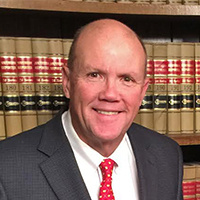Petrey White Collar Crime Lawyer, Alabama
Sponsored Law Firm
-
 x
x

Click For More Info:
-
The Law Offices of Richard L. Cooper, P.A.
848 Brickell Avenue Suite 800 Miami, FL 33131» view mapDWI/DUI, Drug Trafficking, Felony Nationally Ranked Top 40 Under 40
With Richard L. Cooper you can expect a trusted confidant who will work diligently to fully understand your case and determine a road map to help you regain control of your life.
800-756-2781
Not enough matches for Petrey White Collar Crime lawyer.
Below are all Petrey Criminal lawyers.
James A. Jacobs
✓ VERIFIEDFirst licensed to practice law in Alabama in 2003, Attorney James A. Jacobs is a sincere and compassionate professional who cares about his clients an... (more)
William B. Matthews
✓ VERIFIEDWilliam Matthews, Jr. is a practicing lawyer in the state of Alabama specializing in Divorce & Family Law; Criminal; Accident & Injury; Bankruptcy & D... (more)
FREE CONSULTATION
CONTACTRobert D. Segall
FREE CONSULTATION
CONTACT
 Richard L. Cooper Miami, FL
Richard L. Cooper Miami, FL AboutMiami Attorney at Law
AboutMiami Attorney at Law ServicesCriminal Defense
ServicesCriminal Defense



